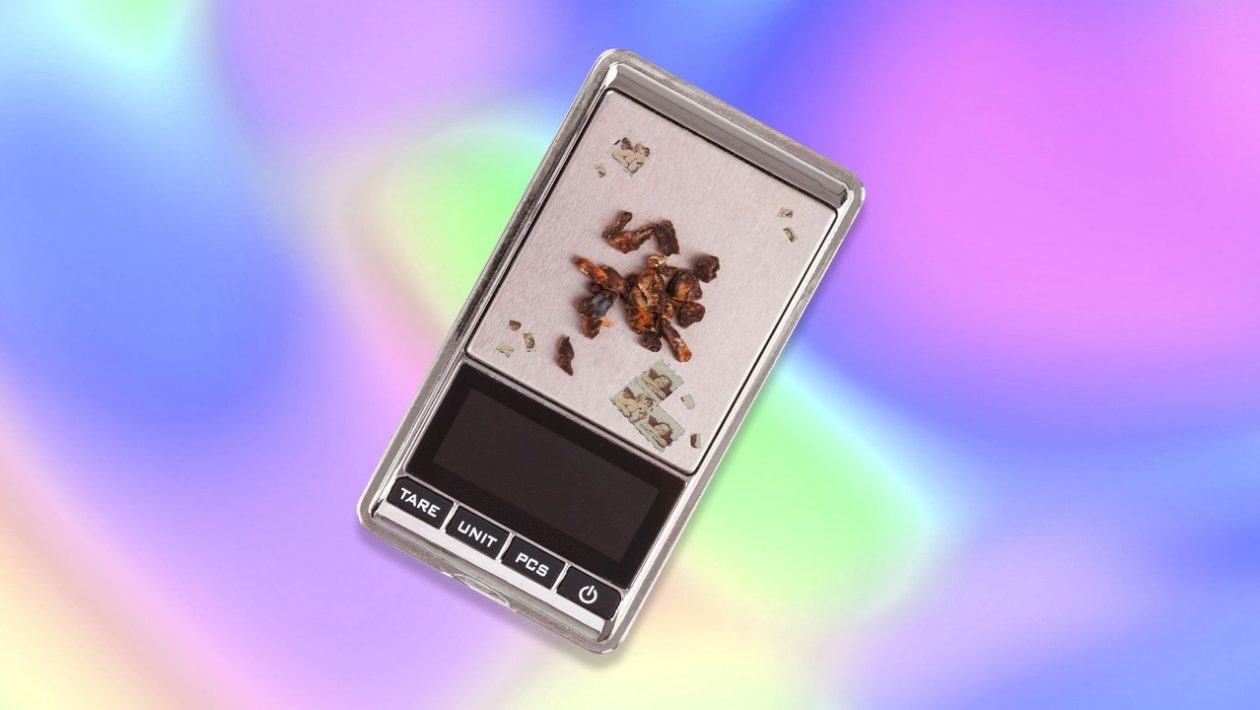Those who microdose, on the other hand, don’t report experiencing a radically altered state of reality or mystical awakening. However, some do report small changes in perception, but these changes are very subtle, like colors appearing a little brighter. In other words, the effects of microdosing are more or less what you might expect: much less intense versions of the effects of a trip.
Mark Gober, the author of An End to Upside Down Thinking, says psychedelics may play a key role in unlocking the secrets of how the human mind works. “It’s a much more subtle effect, but people report things like just being slightly less anxious or more creative,” Gober says.
Why Is Microdosing Illegal?
Like LSD, psilocybin and psilocin are classified as Schedule I drugs in the U.S., which means that there is not currently an accepted medical use for the substances and they are considered to have a high potential for abuse. Interestingly, the mushrooms themselves are not scheduled, even though their derivative hallucinogenic drugs are.
Unlike LSD, psilocybin is currently being studied for therapeutic purposes. According to the Third Wave, regulatory bodies like the Drug Enforcement Administration (DEA) and the Food and Drug Administration (FDA) have loosened rules ever so slightly about using psilocybin in controlled research trials in recent years, allowing it to be studied more than any other psychedelic.
Can Microdosing Help Anxiety and Depression?
Psychedelics went largely unstudied for years, but in August 2018, researchers published a study that suggested microdoses of “magic truffles” (the underground portion of psilocybin mushrooms) increased both divergent and convergent thinking — two forms of thinking associated with creativity and problem-solving. While psychedelics’ true impact on creativity and productivity remains to be seen, there’s actually far more evidence that they could be useful in treating mental health issues — particularly anxiety, depression, and PTSD.
“Psychedelic research has been shown to have positive effects on depression and anxiety,” says psychiatrist and addiction specialist Neeraj Gandotra, who serves as the chief medical officer at the Delphi Behavioral Health Group. “There have been numerous studies utilizing psychedelics like psilocybin and ketamine, both of which have been shown to improve anxiety symptoms and, in the case of ketamine, be a rapid-acting agent for suicidality. So there is some evidence supporting the idea of a psychedelic medication for being used in a controlled environment to treat anxiety disorders.”
Alex Dimitriu, a physician, agrees that LSD and other psychedelics’ impact on the serotonergic system play a role in its effectiveness in treating anxiety and depression, but he also suggests it may be something more than that. “Even SSRIs that people take now don’t just work on one little part of the brain. They work on every part of the brain — almost like a shotgun blast. Somehow, in that process, we hit on a target that helps. The same is true, I think, with LSD,” he says.
Let’s Talk About Safely Microdosing
In the short term, at least, there are no real dangers or side effects inherent to microdosing itself. That doesn’t mean that there aren’t still dangers associated with the process.
The biggest risk that microdosers take is the decision to take an illegal drug. “I think that there is an implied risk with any illicit substance,” Gandotra says. “When people buy heroin and cocaine, they don’t know what they’re really getting. Unfortunately, this is part of that transaction — you are placing trust in someone you don’t know.”
Mercedes says the question of how to safely source psychedelics is the most common one she’s asked in her work with the Third Wave. She doesn’t have a perfect answer. She says that finding trusted sources takes time and an investment in the psychedelic community — something that can be frustrating for people who are completely new to the scene and who want to try microdosing but can’t figure out how to safely get started.
Do Doctors Recommend Using LSD or Mushrooms to Treat Anxiety and Depression?
The short answer is no, doctors and psychiatrists don’t recommend microdosing — at least not in its current form. In addition to the risks assumed by sourcing an illegal drug, Gandotra points to the potential for building a tolerance and accidentally taking too much of the substance in question, even if your intention is to microdose.
